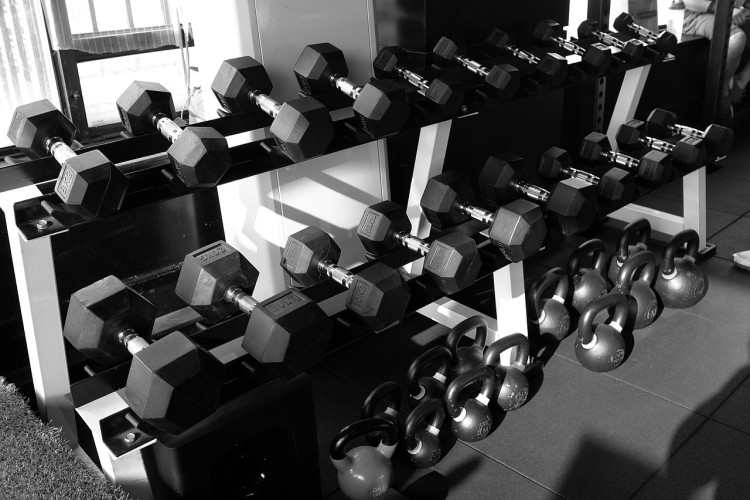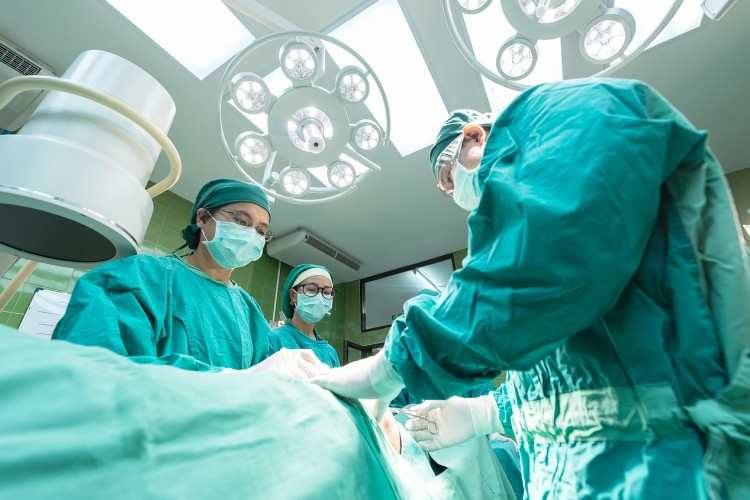- CONTACT US
- Self-care
- General Health
General Health
 GENERAL HEALTH|GENERAL HEALTHDaily Steps for Health: How Much Walking?Walking acts as "health insurance" for your body—a daily step count over 7,000 can massively cut down mortality risk by 50%-70% (Based on a cohort study of 100,000 individuals). After 40, every step counts more in cardiovascular protection. Older adults should clock in 6,000–8,000 steps per day; younger adults need 8,000–10,000 steps —it’s like activating an intelligent "regulator" which provides plenty of health benefits and does not stress the joints. Once you exceed the limit, your body switches to an "overclocking mode" — wears and tears follow. But for children, it is the running and jumping that encode their vitality.
GENERAL HEALTH|GENERAL HEALTHDaily Steps for Health: How Much Walking?Walking acts as "health insurance" for your body—a daily step count over 7,000 can massively cut down mortality risk by 50%-70% (Based on a cohort study of 100,000 individuals). After 40, every step counts more in cardiovascular protection. Older adults should clock in 6,000–8,000 steps per day; younger adults need 8,000–10,000 steps —it’s like activating an intelligent "regulator" which provides plenty of health benefits and does not stress the joints. Once you exceed the limit, your body switches to an "overclocking mode" — wears and tears follow. But for children, it is the running and jumping that encode their vitality. GENERAL HEALTH|GENERAL HEALTHClinic Case Study: Avoid Prolonged SittingExtended sitting silently taxes your health; exercise cannot mitigate the entirety of metabolic damages done by 14.5 hour daily "chairoprison." In this case study, a noticed 34-year-old corporate executive decreased his glycated hemoglobin to normal levels by intermittently standing: 5-10 minutes every 90 minutes and actively moving for 30 minutes after meals — equivalent to metaphorically undoing metabolic handcuffs. Thus, it is modern requisite that sedentary hours are treated like smartphone battery percentage — notably in pregnant women and the elderly but also including individuals with chronic vascular stiffness as well at risk of insulin resistance due to being immobile for long periods.
GENERAL HEALTH|GENERAL HEALTHClinic Case Study: Avoid Prolonged SittingExtended sitting silently taxes your health; exercise cannot mitigate the entirety of metabolic damages done by 14.5 hour daily "chairoprison." In this case study, a noticed 34-year-old corporate executive decreased his glycated hemoglobin to normal levels by intermittently standing: 5-10 minutes every 90 minutes and actively moving for 30 minutes after meals — equivalent to metaphorically undoing metabolic handcuffs. Thus, it is modern requisite that sedentary hours are treated like smartphone battery percentage — notably in pregnant women and the elderly but also including individuals with chronic vascular stiffness as well at risk of insulin resistance due to being immobile for long periods. GENERAL HEALTH|GENERAL HEALTHThe Science Behind Ergonomic Chairs You Should KnowThe spine is a precision instrument comprises four natural springs. Ergonomic products are unseen body braces—these 'technology devices, leveraging engineering techniques from WWII-era,' align with bodily contours and turn objects in "posture keepers":. They work like bookends, stabilizing the books to reduce vertebral pressure in smartphone users as 'text neck,' and office workers by hunching; also relieve the current spinal stress. Their science-backed mechanism: vertebral joints are restored to exact, cogwheel-like automation that cannot be dismissed as mere marketing.
GENERAL HEALTH|GENERAL HEALTHThe Science Behind Ergonomic Chairs You Should KnowThe spine is a precision instrument comprises four natural springs. Ergonomic products are unseen body braces—these 'technology devices, leveraging engineering techniques from WWII-era,' align with bodily contours and turn objects in "posture keepers":. They work like bookends, stabilizing the books to reduce vertebral pressure in smartphone users as 'text neck,' and office workers by hunching; also relieve the current spinal stress. Their science-backed mechanism: vertebral joints are restored to exact, cogwheel-like automation that cannot be dismissed as mere marketing. GENERAL HEALTH|GENERAL HEALTHHow to Optimize Vitamin D SupplementationVitamin D is essentially "sunlight currency" in the body. As a fat-soluble secosteroid, 80–90% of Vitamin D is synthesized by skin; for instance, 20 minutes sunbathing in summer swimwear produces 250 μg of D3 (equals 12.5× suggested dose for elderly). Still, "sunlight deficit" affects half the world's population living at high latitudes or practising extreme photoprotection which calls for precise supplementation — "800 IU/d for seniors" as an anti-fall tool; "400 IU/d for infants" against rickets. It takes 2 minutes of "sunlight deposits" a day to make the "longevity key" accessible — infants or 4 minutes adults, health depends more on wisdom exposure than expensive solutions.
GENERAL HEALTH|GENERAL HEALTHHow to Optimize Vitamin D SupplementationVitamin D is essentially "sunlight currency" in the body. As a fat-soluble secosteroid, 80–90% of Vitamin D is synthesized by skin; for instance, 20 minutes sunbathing in summer swimwear produces 250 μg of D3 (equals 12.5× suggested dose for elderly). Still, "sunlight deficit" affects half the world's population living at high latitudes or practising extreme photoprotection which calls for precise supplementation — "800 IU/d for seniors" as an anti-fall tool; "400 IU/d for infants" against rickets. It takes 2 minutes of "sunlight deposits" a day to make the "longevity key" accessible — infants or 4 minutes adults, health depends more on wisdom exposure than expensive solutions. GENERAL HEALTH|GENERAL HEALTHDo We Truly Need Extra Mineral Supplements?The body's use of elements like over 60 ones other than carbon, hydrogen, oxygen, and nitrogen are "elemental ciphers" that sustain life processes. Of these, seven macroelements — calcium, phosphorus, potassium, sulfur, sodium, chlorine and magnesium — make up 60%-80% of the minerals in the body. In China, however, only calcium is significantly and widely deficient. For the remaining minerals, daily balanced diet can keep them in balance. Random testing is like trying to decipher a chaotic code: since 2013 the National Health and Family Planning Commission of China has forbidden preventive mineral testing in children; hair or blood cannot indicate whole-body distribution of minerals. Protecting yourself from these supplement traps equates to refusing false decipherers. We can stay healthy only by rationally replenishing calcium according to symbiosis of elements on this planet.
GENERAL HEALTH|GENERAL HEALTHDo We Truly Need Extra Mineral Supplements?The body's use of elements like over 60 ones other than carbon, hydrogen, oxygen, and nitrogen are "elemental ciphers" that sustain life processes. Of these, seven macroelements — calcium, phosphorus, potassium, sulfur, sodium, chlorine and magnesium — make up 60%-80% of the minerals in the body. In China, however, only calcium is significantly and widely deficient. For the remaining minerals, daily balanced diet can keep them in balance. Random testing is like trying to decipher a chaotic code: since 2013 the National Health and Family Planning Commission of China has forbidden preventive mineral testing in children; hair or blood cannot indicate whole-body distribution of minerals. Protecting yourself from these supplement traps equates to refusing false decipherers. We can stay healthy only by rationally replenishing calcium according to symbiosis of elements on this planet. GENERAL HEALTH|GENERAL HEALTHShould You Take Calcium Supplements and How?Calcium serves as "precision scaffolding" throughout the body, so its uptake 300–500ml of milk plus leafy vegetables and soy daily is essential. Still, 95% aren't getting enough from food so population must—use supplemental calcium: inorganic (carbonate) if digestion fine, organic (citrate) when weak. To supplement daily with 300–500mg, you need vitamin D —the "transporter" —as it improves absorption. Specific populations: vegetarians who need zinc, alcohol consumers requiring magnesium and anemia- or pregnancy-prone individuals must tailor make up those health gaps through precision engineering. According to the American Heart Association, taking calcium supplements in recommended amounts is safe won't harm heart.
GENERAL HEALTH|GENERAL HEALTHShould You Take Calcium Supplements and How?Calcium serves as "precision scaffolding" throughout the body, so its uptake 300–500ml of milk plus leafy vegetables and soy daily is essential. Still, 95% aren't getting enough from food so population must—use supplemental calcium: inorganic (carbonate) if digestion fine, organic (citrate) when weak. To supplement daily with 300–500mg, you need vitamin D —the "transporter" —as it improves absorption. Specific populations: vegetarians who need zinc, alcohol consumers requiring magnesium and anemia- or pregnancy-prone individuals must tailor make up those health gaps through precision engineering. According to the American Heart Association, taking calcium supplements in recommended amounts is safe won't harm heart. GENERAL HEALTH|GENERAL HEALTHWeekend Health ChecklistHealth management operates much like "the body's weekly update system". Tracking weight changes weekly, step distribution and sleep 5–9 hours — regular life cycle calibrations. A weekend "health ledger" helps monitor the past week’s exercise, sedentary behaviour and nutrient intake—and hence to know where you stand eg neuromuscular (due for sitting) or nutrient compensation. Make specific plans to fix these for next week: this prevents chronic damage (e.g., cervical stiffness) by making weekly corrections a 'checkpoint-restart' that prevents health debt. The first thing standing between you and metabolic diseases is a weight variability of 0.5kg.
GENERAL HEALTH|GENERAL HEALTHWeekend Health ChecklistHealth management operates much like "the body's weekly update system". Tracking weight changes weekly, step distribution and sleep 5–9 hours — regular life cycle calibrations. A weekend "health ledger" helps monitor the past week’s exercise, sedentary behaviour and nutrient intake—and hence to know where you stand eg neuromuscular (due for sitting) or nutrient compensation. Make specific plans to fix these for next week: this prevents chronic damage (e.g., cervical stiffness) by making weekly corrections a 'checkpoint-restart' that prevents health debt. The first thing standing between you and metabolic diseases is a weight variability of 0.5kg. GENERAL HEALTH|GENERAL HEALTHPreventing Influenza: Protection and ExposureAfter the pandemic, population immunity facing an 'immune debt' is analogous to untrained soldiers. Three layers of defence: a basic protection, turning the immune 'training grounds' ON and实战 boosting antibodies levels. Soochow University's findings show children lack antibody protection; scientifically control microbial exposure to serve as drills for your immune armies to prevent being delicate flowers in sterile greenhouses.
GENERAL HEALTH|GENERAL HEALTHPreventing Influenza: Protection and ExposureAfter the pandemic, population immunity facing an 'immune debt' is analogous to untrained soldiers. Three layers of defence: a basic protection, turning the immune 'training grounds' ON and实战 boosting antibodies levels. Soochow University's findings show children lack antibody protection; scientifically control microbial exposure to serve as drills for your immune armies to prevent being delicate flowers in sterile greenhouses. GENERAL HEALTH|GENERAL HEALTHMaintaining oral health: Choosing the Right Toothbrush MattersToothbrush selection is a precision-based health adjustment: small heads precisely cover the tooth surface, short handles control the cleaning strength, and medium-firm bristles break through the bacterial plaque. The seemingly subtle 3cm difference in brush head is a 30% leap in plaque removal efficiency. A friend's misuse of a super-soft sponge brush led to plaque build-up, confirming the scientific rule of "function over comfort". When the replacement cycle meets the bacterial growth curve, three months is the optimal timeframe between bristle efficiency and hygiene safety. Children's toothbrushes use the length of incisors as a natural scale, which is in line with the biological code of oral development. Healthy habits begin with the physical calibration of everyday tools.
GENERAL HEALTH|GENERAL HEALTHMaintaining oral health: Choosing the Right Toothbrush MattersToothbrush selection is a precision-based health adjustment: small heads precisely cover the tooth surface, short handles control the cleaning strength, and medium-firm bristles break through the bacterial plaque. The seemingly subtle 3cm difference in brush head is a 30% leap in plaque removal efficiency. A friend's misuse of a super-soft sponge brush led to plaque build-up, confirming the scientific rule of "function over comfort". When the replacement cycle meets the bacterial growth curve, three months is the optimal timeframe between bristle efficiency and hygiene safety. Children's toothbrushes use the length of incisors as a natural scale, which is in line with the biological code of oral development. Healthy habits begin with the physical calibration of everyday tools. GENERAL HEALTH|GENERAL HEALTHLack of sleep emerges as a major trigger for heart diseaseSleep is an irreplaceable pillar of health, far more important than diet and exercise - medically speaking, sleep deprivation causes the fastest physiological decline. In the modern dilemma, sleep disorders are replacing obesity as the leading cause of cardiovascular disease, with 70% of patients in outpatient clinics suffering from them. There is no need to force perfect sleep, but we need to keep the bottom line of "no chronic sleep deprivation": deep sleep for neural repair and REM sleep for emotional memory consolidation. Although fragmented sleep can temporarily boost alertness, it cannot reverse the long-term sleep debt. The real key is to consider sleep as an uncompromising investment in life, rather than a "adjustable time slot".
GENERAL HEALTH|GENERAL HEALTHLack of sleep emerges as a major trigger for heart diseaseSleep is an irreplaceable pillar of health, far more important than diet and exercise - medically speaking, sleep deprivation causes the fastest physiological decline. In the modern dilemma, sleep disorders are replacing obesity as the leading cause of cardiovascular disease, with 70% of patients in outpatient clinics suffering from them. There is no need to force perfect sleep, but we need to keep the bottom line of "no chronic sleep deprivation": deep sleep for neural repair and REM sleep for emotional memory consolidation. Although fragmented sleep can temporarily boost alertness, it cannot reverse the long-term sleep debt. The real key is to consider sleep as an uncompromising investment in life, rather than a "adjustable time slot". GENERAL HEALTH|GENERAL HEALTHGolden 8-hour sleep adds 5 years to lifeThe medical profession has established that the golden interval for sleep is 7-8 hours: a 9-year tracking of 400,000 people in China showed that those who slept less than 5 hours or more than 10 hours had a 10-23% surge in the risk of stroke and cerebral hemorrhage, and a consistent 23% increase in the risk of cardiovascular disease; a study in the United Kingdom confirmed that more than 9 hours of sleep is even more dangerous, with disease risk soaring over 50%. A comprehensive analysis of data from 1.19 million people reveals that 7-8 hours of sleep reduces the risk of heart attack by 56% compared to groups with less than 5 hours. The top journal Circulation confirms that maintaining this duration extends life by 5 years. The safe bottom line is 5-9 hours - the optimal range for biological repair.
GENERAL HEALTH|GENERAL HEALTHGolden 8-hour sleep adds 5 years to lifeThe medical profession has established that the golden interval for sleep is 7-8 hours: a 9-year tracking of 400,000 people in China showed that those who slept less than 5 hours or more than 10 hours had a 10-23% surge in the risk of stroke and cerebral hemorrhage, and a consistent 23% increase in the risk of cardiovascular disease; a study in the United Kingdom confirmed that more than 9 hours of sleep is even more dangerous, with disease risk soaring over 50%. A comprehensive analysis of data from 1.19 million people reveals that 7-8 hours of sleep reduces the risk of heart attack by 56% compared to groups with less than 5 hours. The top journal Circulation confirms that maintaining this duration extends life by 5 years. The safe bottom line is 5-9 hours - the optimal range for biological repair. GENERAL HEALTH|GENERAL HEALTHLight fasting is not so difficult, three steps to healthy light fastingLight fasting anti-aging in three steps: 16 hours of fasting to trigger cell repair (including 8 hours of sleep), daily intake limit of 500-800 calories, 1 day a week. Research shows intermittent fasting reduces the risk of metabolic diseases. Scientific protocol emphasizes 8 hours of unrestricted eating and balanced portion control (e.g., veggie-fruit platter + multivitamin) to avoid sudden calorie drops. Light fasting achieves genetic-level anti-aging with sustainability, balancing repair with physiological adaptability.
GENERAL HEALTH|GENERAL HEALTHLight fasting is not so difficult, three steps to healthy light fastingLight fasting anti-aging in three steps: 16 hours of fasting to trigger cell repair (including 8 hours of sleep), daily intake limit of 500-800 calories, 1 day a week. Research shows intermittent fasting reduces the risk of metabolic diseases. Scientific protocol emphasizes 8 hours of unrestricted eating and balanced portion control (e.g., veggie-fruit platter + multivitamin) to avoid sudden calorie drops. Light fasting achieves genetic-level anti-aging with sustainability, balancing repair with physiological adaptability. GENERAL HEALTH|GENERAL HEALTHThe health hazards of prolonged use of electronic productsThe prolonged use of electronic products triggers three major health risks: forward head posture (60° low cervical spine pressure 28kg ≈ equivalent to a 28kg load), requiring to adjust the posture every 30 minutes; screen blue light disrupts melatonin production causing insomnia, it is recommended to stay away from the electronic devices before going to bed; indoor addiction displaces the outdoor time (children need to be vigilant about developmental delays). The core of the solution is the intermittent usage principle - sedentary ≤ 90 minutes/per session, eye exercises follow the 20-20-20 principle, ensure daily outdoor exposure. Instead of resisting tech devices, it is better to strategically adjust: maintaining cervical alignment, regulating sleep cycles, and prioritizing sunlight exposure are the guidelines for a healthy life in the digital age.
GENERAL HEALTH|GENERAL HEALTHThe health hazards of prolonged use of electronic productsThe prolonged use of electronic products triggers three major health risks: forward head posture (60° low cervical spine pressure 28kg ≈ equivalent to a 28kg load), requiring to adjust the posture every 30 minutes; screen blue light disrupts melatonin production causing insomnia, it is recommended to stay away from the electronic devices before going to bed; indoor addiction displaces the outdoor time (children need to be vigilant about developmental delays). The core of the solution is the intermittent usage principle - sedentary ≤ 90 minutes/per session, eye exercises follow the 20-20-20 principle, ensure daily outdoor exposure. Instead of resisting tech devices, it is better to strategically adjust: maintaining cervical alignment, regulating sleep cycles, and prioritizing sunlight exposure are the guidelines for a healthy life in the digital age. GENERAL HEALTH|GENERAL HEALTHHow to scientifically supplement vitamin A and how much?Vitamin A is essential for vision, immunity, and child development, and the risk of deficiency in children is five times higher than in adults, with night blindness being a typical manifestation. Animal foods such as milk (choose full fat), eggs, and animal liver are good quality sources. Plant-based sources include red-orange vegetables like carrots. One egg per day for children and 500ml of milk plus eggs in the morning and evening for adults is sufficient to meet the target. It is important to be aware of the upper limit of intake (10mg/day for adults, 7.5-15mg for children), as excessive amounts may be toxic.
GENERAL HEALTH|GENERAL HEALTHHow to scientifically supplement vitamin A and how much?Vitamin A is essential for vision, immunity, and child development, and the risk of deficiency in children is five times higher than in adults, with night blindness being a typical manifestation. Animal foods such as milk (choose full fat), eggs, and animal liver are good quality sources. Plant-based sources include red-orange vegetables like carrots. One egg per day for children and 500ml of milk plus eggs in the morning and evening for adults is sufficient to meet the target. It is important to be aware of the upper limit of intake (10mg/day for adults, 7.5-15mg for children), as excessive amounts may be toxic. GENERAL HEALTH|GENERAL HEALTHDiet, exercise, and stress management can also improve gut microbiotaRich dietary fiber is like a nutritional package for gut microbiota, vegetables and grains need to account for half of the diet, and with the Mediterranean diet, a paradise for microbiota can be constructed quickly; meanwhile, regular aerobic exercise is like a fitness trainer for the microbiota, which can significantly increase the number of beneficial bacteria. And deviating from the normal mealtime for more than 2 hours will cause the risk of Helicobacter pylori infection to soar by 13 times; and the risk of gastritis will increase by 6 times. Together with stress management, we can protect these trillions of microbial residents so that food becomes a natural microbiota-supporting remedy.
GENERAL HEALTH|GENERAL HEALTHDiet, exercise, and stress management can also improve gut microbiotaRich dietary fiber is like a nutritional package for gut microbiota, vegetables and grains need to account for half of the diet, and with the Mediterranean diet, a paradise for microbiota can be constructed quickly; meanwhile, regular aerobic exercise is like a fitness trainer for the microbiota, which can significantly increase the number of beneficial bacteria. And deviating from the normal mealtime for more than 2 hours will cause the risk of Helicobacter pylori infection to soar by 13 times; and the risk of gastritis will increase by 6 times. Together with stress management, we can protect these trillions of microbial residents so that food becomes a natural microbiota-supporting remedy.
LATEST POSTS
- 1
 6 Hints to Improve Your Moxy, In addition to Your Mentality
6 Hints to Improve Your Moxy, In addition to Your Mentality - 2
 6 Hints to Upgrade Your Appeal, In addition to Your Outlook
6 Hints to Upgrade Your Appeal, In addition to Your Outlook - 3
 6 Hints to Improve Your Charm, In addition to Your Mentality
6 Hints to Improve Your Charm, In addition to Your Mentality - 4
 6 Hints to Upgrade Your Charm, In addition to Your Mentality
6 Hints to Upgrade Your Charm, In addition to Your Mentality - 5
 6 Hints to Improve Your Mystique, In addition to Your Outlook
6 Hints to Improve Your Mystique, In addition to Your Outlook


















